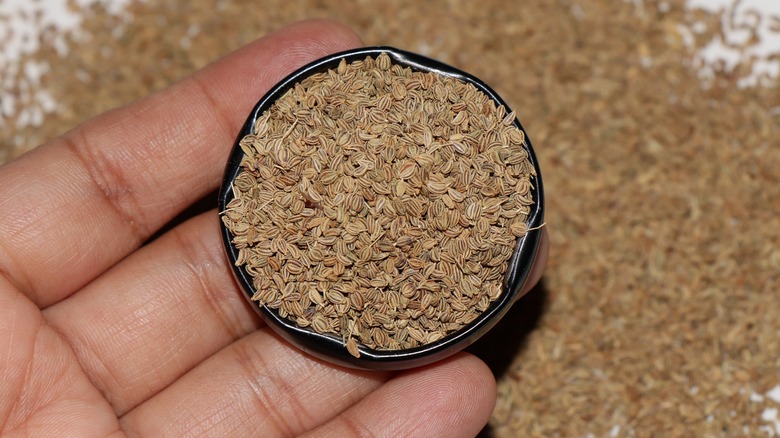Radhi Devlukia's Secret To Cooking Plant-Based Versions Of Conventional Meat Dishes - Exclusive
It's hard to argue with the idea that we all need a few more veggies in our lives. By and large, global consumer appetites seem to agree. Economic reports shared by Research and Markets suggest that the plant-based food sector may grow as much as 17.6% by 2027 — a staggering percentage when you consider that this market was valued somewhere around $43 billion at the end of 2023, per Precedence Research.
For all the successes, as more home cooks make the shift to plant-based foods, the challenges of doing so become clearer. Research conducted in the UK and published in Sustainability found that one of the key barriers to shifting to plant-based diets is taste; that leads many to try replicating conventional meat-based dishes in a vegetarian or plant-based way ... and not always to successful results.
Recently, Tasting Table spoke with nutritionist, author, and foodfluencer Radhi Devlukia in an exclusive interview. Devlukia's new cookbook, "Joyfull: Cook Effortlessly, Eat Freely, Live Radiantly," has just hit store shelves, and within its pages is a lifetime of advice on plant-based cooking. Along with the many beautiful recipes in "Joyfull," Devlukia's social media is also regularly filled with clever creations that, at times, include veggie twists on dishes that are normally meat standards. With this in mind, Devlukia shared one of her secrets on cooking plant-based versions of conventional meat plates: "I think spices are the key to making plant-based food exciting, flavorful, and fun," she said.
Start with the spices
Radhi Devlukia's advice for home cooks is to build a well-stocked spice pantry. To do this, the first thing to consider is ... still meat.
Beyond its cultural and nutritional role, meat is attractive to human palates because it contains the amino acid glutamate, which invokes umami. Umami is hard to find in foods without caloric fat. Not many spices contain glutamate, but a creative blend can replicate umami. Devlukia recommends asafoetida, but other spices with earthy, savory silhouettes, like mace, cumin, and turmeric, can do the same. Black cardamom, ajwain, or smoked paprika can season your plant-based foods even deeper.
Besides your spice cabinet, there are other methods to give plant-based foods some heft. Kombu, a dried kelp, is a vegetarian ingredient that contains a higher level of glutamate to satisfy unctuous cravings. Dried mushrooms are also rich in umami and can be employed as a spice when blitzed into a powder. Be aware: they won't dissolve like other spices. Devlukia doesn't recommend these explicitly for seasoning food, but mushrooms and seaweed both appear in "Joyfull" as recommended foods for plant-based diets.
Devlukia offered more advice on cooking plant-based versions of conventional meat dishes, suggesting that cooks shouldn't try to mimic meat. Instead, she says, to "lean into the plant-based protein, lean into the natural beans and lentils and tofu, the things that feel a lot more natural to being plant-based."
You can purchase Radhi Devlukia's cookbook, "Joyfull: Cook Effortlessly, Eat Freely, Live Radiantly," here.

